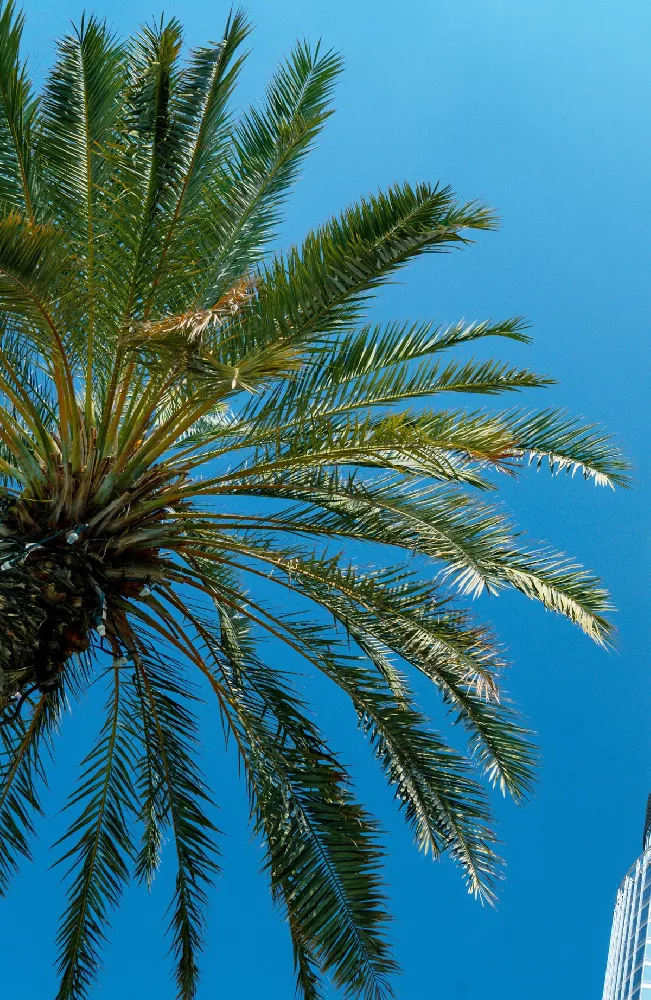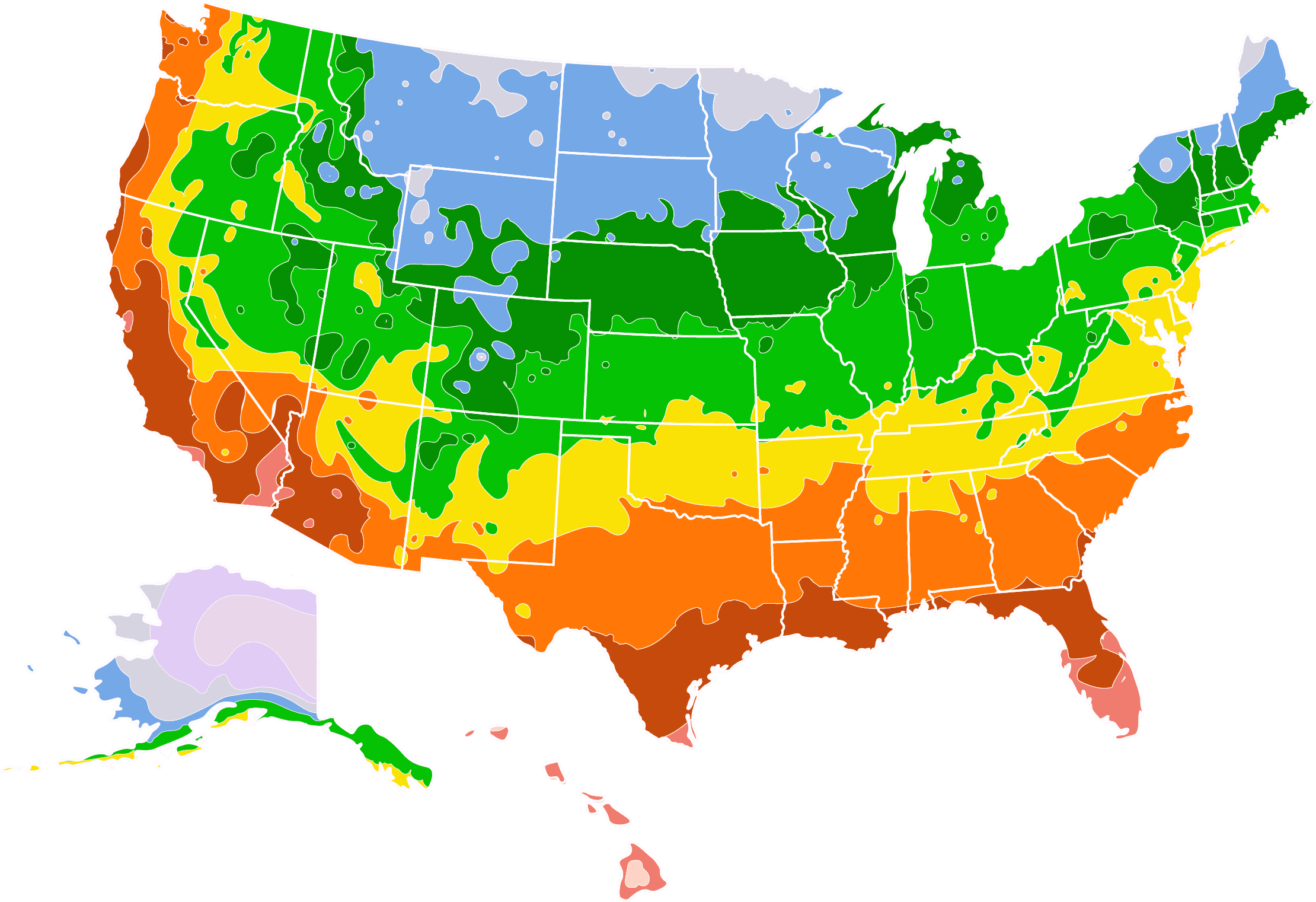- Home >
- Ornamental Plants >
- Sylvester Palm Trees
Sylvester Palm Trees for Sale - Buying & Growing Guide
- Ships in 1-2 days
- 1-Year Warranty Eligible
- Pots or accessories are not included unless specified in the product options.
Shipping Details:
Once your order is shipped, you’ll receive an email with a tracking number and estimated delivery date. Most orders ship immediately, but some items are seasonal and may only ship in spring or fall. These products are noted on the website.
Sylvester palm trees are a great plant to use if you want to design a garden with a tropical theme. This tree, called Phoenix sylvestris in the botanical community, has large leaves that hold countless silvery leaflets that shimmer in the wind. These trees also produce date fruits that are a key ingredient in some wines and jams. But no matter the reason you choose to grow Sylvester palm, you can rest assured that this species will be easy to maintain with little effort on your part.
- Distinct tropical look with large palm leaves and prominent fruits.
- Fruits are useful in wines and jams and taste great eaten fresh.
- Looks beautiful even with little to no maintenance.
Plant Care
Sunlight

Needs to grow in areas with six hours or more of full sunlight per day.
Watering
Water regularly after planting. Mature trees need water once per week or less.
Fertilizing

Choose a slow-release fertilizer that has high amounts of potassium and nitrogen.
Planting and Care
Planting instructions
There are two main conditions that the Sylvester palm tree needs to thrive. The first is an area with open sun exposure, and the second is soil that has excellent drainage. Provided that you meet those requirements and that you live in a region that does not get colder than 15 degrees Fahrenheit at any point in the year, growing a healthy Sylvester palm tree should not be difficult.
It’s also important to anticipate the mature size of this tree during planting. A Sylvester palm tree needs to grow in the ground with plenty of vertical space above.
Watering and nutrients
When you first plant a Sylvester palm tree, you should provide it with water multiple times each week. However, once this plant is beginning to mature, it will need much less water. Often, a single weekly watering or less is enough for a healthy Sylvester palm tree.
Fertilize your Sylvester palm tree about three times per growing season. When you do, the fertilizer you use should be highest in potassium, followed by nitrogen, then phosphorus.
Pollination
Male and female Sylvester palm trees are separate plants, and you’ll need both if you want fruit. While the female plants develop those tasty dates, the male trees have flowers that hold pollen alone.
Sylvester palm trees will also need some assistance for pollination. Fortunately, they can pollinate both by wind and by the insects that visit their flowers. Make sure that you plant your male and female Sylvester palm trees close enough for them to pollinate and create fruit.
Pruning
Prune Sylvester palm trees in the spring. As you prune, focus on removing any leaves and leaflets that are turning yellow or brown or that have broken or died. When you remove those parts of the plant, you should use sharp, clean shears. You should also cut close to the trunk. Cutting close to the trunk lets the tree allocate its energy to other healthier leaves. Removing those fronds will improve the appearance of your Sylvester palm tree.
Pests, diseases, and animals
Like many palm trees, Sylvester palm trees can contract lethal bronzing. Lethal bronzing is a bacterial infection that affects all sorts of palms throughout the world. It is currently spreading quickly through regions such as central Florida.
Along with that bacterial threat, Sylvester palm trees can also have issues with insects. Some of the most common ones that will arise are mealybugs and aphids. Palmetto weevil and spider mites, along with some fungal infections, can also harm Sylvester palm trees.
Harvesting
Female Sylvester palm trees produce large clusters of fruit every year. Those clusters hang on long stalks. To harvest, remove an entire stalk from the tree. Then remove the individual dates from the stalk.
Wait until the dates have turned a light brown color before you harvest. When the fruits are ready for harvest, they will be very easy to remove from the stalk and may fall to the ground, so handle them with care.
Achieving maximum results
Sylvester date palms are both highly functional and ornamental. Be sure to take advantage of both those aspects of this incredible plant. Prune lower fronds to emphasize the height and texture of the trunk.
Also, consider getting creative with the dates this tree produces. While eating them on their own is delicious, it is also somewhat easy to make these fruits into homemade jelly. Sylvester palm tree dates can also be a convenient food source for some farm animals as well.
FAQs
How tall is a Sylvester palm tree?
The mature size of the Sylvester palm tree is around 50 feet. To achieve that height, this species grows at a moderate to fast rate of one and a half feet per year. The Sylvester palm tree also has a considerable spread of 10 to 15 feet. That spreading canopy is the reason why you need to be careful of how far you plant your Sylvester palm trees from each other and nearby structures.
Is a Sylvester palm tree cold-hardy?
Sylvester palm trees enjoy warm weather year-round, they can be surprisingly cold-hardy compared to some other palm tree varieties. With the right care, a Sylvester palm tree can withstand temperatures as low as 15 degrees Fahrenheit. Still, those conditions are not ideal, and this plant is better off growing where it is warmer. Generally, it is better if the weather remains above 50 degrees Fahrenheit.
Where is the Sylvester palm tree native to?
This palm tree variety is native to areas of India and Pakistan. However, due to its fruit and overall attractiveness, this tree now grows throughout the world. In the United States, it has a reasonably large range. It grows in southern states like Florida and can be grown as far north as Oregon. In the United States, the Sylvester palm tree is a common feature of many golf courses and resort locations.
Compare Similar Products
Customer Reviews
 Sylvester
SylvesterVery pleased, Return customer because of the service & quality product ! Thanks
You can't add more Product Name - Product size to the cart.
OK









